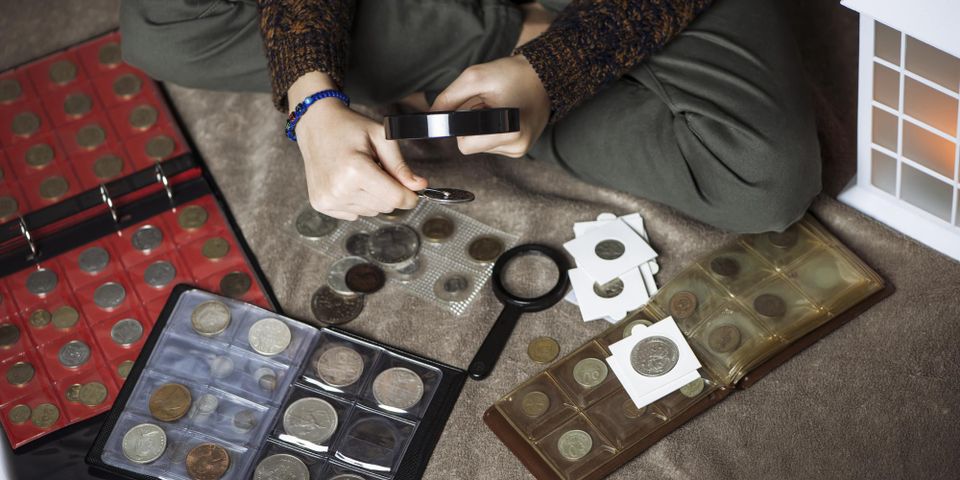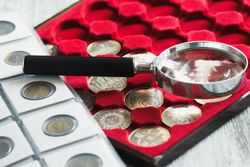
Rare coin collections can be extremely valuable. Unfortunately, coins may react negatively with certain environmental factors and become damaged. Protect your collection by following this coin storage guide.
A Guide to Rare Coin Storage
How Can Coins Become Damaged?
Coins can become damaged when exposed to the following elements:
- Humidity: When stored near kitchens, bathrooms, or other humid areas, coins (especially copper and silver coins) can react negatively with water vapor and become corroded or discolored.
- Acids: If you touch your coins, you may leave acid deposits that cause discoloration, spotting, toning, or microscopic scratching. Acids are also found in standard paper and cardboard, so never store your coins in or around those materials.
- Extreme Temperatures: Heat speeds up the time it takes for coins to become damaged from factors like humidity and acids, while cold can create moisture that turns into liquid water and causes water damage like corrosion and discoloration.
- Chlorine: Coin flips made from plastic that contains PVC (polyvinyl chloride) can cause chlorine damage such as corrosion and toning. Your coins may also suffer chlorine damage if vapors from your pool or hot tub enter your coin storage area.
- Air Pollution: If you live in a dense urban area, air pollution from vehicles can enter your home and corrode your rare coin collection if it’s not properly stored.
How Can You Safely Store Your Rare Coins?
 Never store your collection in a garage, basement, or attic, as these areas are subject to extreme temperature changes that reduce the time it takes for your coins to become damaged. Instead, place your coins in a comfortable room away from the kitchen and bathroom, as these areas create humidity. The ideal room is often a bedroom or den.
Never store your collection in a garage, basement, or attic, as these areas are subject to extreme temperature changes that reduce the time it takes for your coins to become damaged. Instead, place your coins in a comfortable room away from the kitchen and bathroom, as these areas create humidity. The ideal room is often a bedroom or den.
Once you’ve chosen a room, store your collection in a holder, album, or folder designed specifically for storing coins, and place it in a closet or under a bed to protect it from the elements. You could also purchase a safe to store your coins in, though you’ll need to place a silica gel pack in the safe to absorb humidity; that’s because most safes are made of a material that emits water vapor.
You could also store your collection in a deposit box at the bank. Like safes, bank vaults emit water vapor, so you’ll still want to store a silica gel pack with the collection. No matter where you store your coins, check on them every six months so you can identify and treat damage before it worsens.
When you want to add to your collection or turn your rare coins into cash, visit Coins & Stuff in High Point, NC. Established in 1980, these trusted coin dealers will use their decades of experience to help you buy and sell coins at a fair price. Learn more about their services online, and call (336) 885-5323 to discuss your needs with a friendly team member.
About the Business
Have a question? Ask the experts!
Send your question

